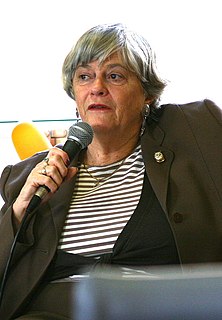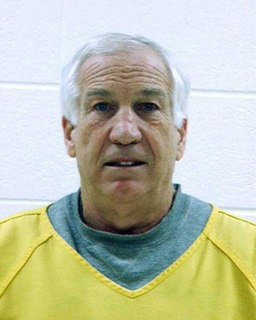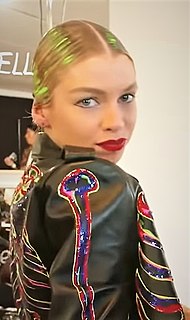A Quote by Wolfgang Amadeus Mozart
I should like to know for what reason idleness is so popular with many young people that it is impossible to dissuade them from it either by words or by chastisements.
Related Quotes
For we let our young men and women go out unarmed in a day when armor was never so necessary. By teaching them to read, we have left them at the mercy of the printed word. By the invention of the film and the radio, we have made certain that no aversion to reading shall secure them from the incessant battery of words, words, words. They do not know what the words mean; they do not know how to ward them off or blunt their edge or fling them back; they are prey to words in their emotions instead of being the masters of them in their intellects.
I should think that many of our poets, the honest ones, will confess to having no manifesto. It is a painful confession but the art of poetry carries its own powers without having to break them down into critical listings. I do not mean that poetry should be raffish and irresponsible clown tossing off words into the void. But the very feeling of a good poem carries its own reason for being... Art is its own excuse, and it’s either Art or it’s something else. It’s either a poem or a piece of cheese.
When you start out on a career in the arts you have no idea what you are doing. This is great. People who know what they are doing know the rules, and know what is possible and impossible. You do not. And you should not. The rules on what is possible and impossible in the arts were made by people who had not tested the bounds of the possible by going beyond them. And you can. If you don't know it's impossible it's easier to do. And because nobody's done it before, they haven't made up rules to stop anyone doing that again, yet.
We're rewarding either the reality or the appearance of youth, which is why you have all these people in their fifties trying to act like they're seventeen. You know, it's great to be young. Be young. By all means, be young. But always remember that youth is also kinda dumb, and doesn't know a lot yet.
I'm a great believer in compromise. I know it's not popular among young idealists. Compromise is not popular. It's not at all popular among young people who these days call themselves "activists." They think compromises are dishonest, opportunistic, humiliating. Not in my vocabulary. In my vocabulary, the word "compromise" is synonymous to the word "life".
In terms of - my relationship with so many, many young people. I would - I would guess that there are many young people who would come forward. Many more young people who would come forward and say that my methods and - and what I had done for them made a very positive impact on their life. And I didn't go around seeking out every young person for sexual needs that I've helped. There are many that I didn't have - I hardly had any contact with who I have helped in many, many ways.
Happy," I muttered, trying to pin the word down. But it is one of those words, like Love, that I have never quite understood. Most people who deal in words don’t have much faith in them and I am no exception – especially the big ones like Happy and Love and Honest and Strong. They are too elusive and far to relative when you compare them to sharp, mean little words like Punk and Cheap and Phony. I feel at home with these, because they’re scrawny and easy to pin, but the big ones are tough and it takes either a priest or a fool to use them with any confidence.




































